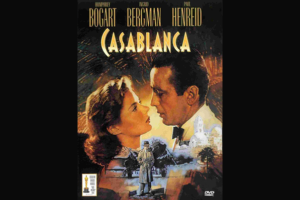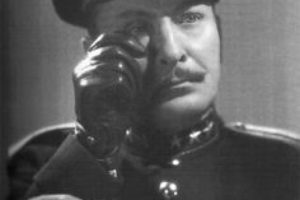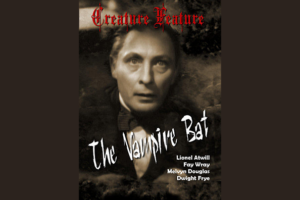
Up that rigging, you monkeys! Aloft! There’s no chains to hold you now. Break out those sails and watch them fill with the wind that’s carrying us all to freedom!


I love this movie. It is an epic swashbuckling adventure starring one of the two greatest swashbuckling actors, Errol Flynn with the other of course being Douglas Fairbanks. Today’s movie is Captain Blood (1935). This movie features royal intrigue, revolution, slavery, pirating, revenge, treachery, patriotism, and reward. This movie features an abundance of great actors. Many of these actors we have previously covered so I will jump right into the biographies.
ACTORS – Captain Blood (1935)
Lionel Atwill played a fairly typical role as the mean slave-owning supporter of King James II, Colonel Bishop. Atwill and his authoritarian roles were first discussed in Son of Frankenstein (1939).
The great actor and swordsman Basil Rathbone played French pirate, Levasseur. Rathbone was first discussed in The Magic Sword (1962).
Donald Meek had a small role as the inept Caribbean Dr. Whacker. Meek was discussed in Episode 61 – Stagecoach (1939).
Carrol Naish played the role of Cahusac Levasseur First Mate. Naish was first discussed in Episode 25 – Sahara (1943). The Humphrey Bogart one, not that terrible Matthew McConaughey film.
Finally, E.E. Clive had a tiny role as the Clerk of the Court. Clive was discussed in Episode 7 – Bride of Frankenstein (1935).
As for actors we have not previously discussed, I will start with the great Errol Flynn. Errol Flynn played Captain/Doctor Peter Blood. What a man! Flynn stated that he was Irish like his father although he was in fact born in Tasmania in 1909. He was somewhat of a wild boy as you should be when you are from that part of the world. He was thrown out of every school he attended for various things including a sex scandal with a laundrywoman.
After he was fired from a job in Sydney for pilfering petty cash he headed to Papua New Guinea at the age of eighteen to make his fortune. It was during this time that he worked at many jobs such as policeman, garbage man, treasure hunter, sheep castrator, ship-master, fisherman, and soldier.
He took an acting job in an Australian production In the Wake of the Bounty (1933) where he played Fletcher Christian. Depending on who you believe he may have fled to England ahead of the law and a line of cockled husbands.
Flynn began working at a repertory company where he received acting training until he was fired for throwing a female stage manager down the stairs. He went to work at Warner Brothers’ Teddington Studios in Middlesex where he worked as an extra until he was given the lead in Murder at Monte Carlo (1935) a lost film. During this filming, he was noticed by Warner Brothers US and moved to America as a contract actor.
Flynn received his first major role as Dr. Peter Blood when Robert Donat withdrew from the project. Flynn blew the roof off in this role in Captain Blood (1935). This movie made him the heir apparent to the great swashbuckling actor Douglas Fairbanks. This was followed shortly by The Private Lives of Elizabeth and Essex (1939).
In addition to the eight films with Oliva de Haviland, Flynn was in The Prince and the Pauper (1937), and The Dawn Patrol (1938). Many have intimated that Flynn and de Haviland were in a romantic relationship. Both of their autobiographies indicate that they were in love but the affair was never consummated.
By 1940, Flynn was at the height of his career. When World War II broke out, as an American citizen, unlike John Wayne, Flynn attempted to enlist. He failed the medical exam because of a heart attack, malaria, chronic back pain for which he used narcotics, tuberculosis, and multiple venereal diseases. He took the criticism for not enlisting rather than let it be known he was in such bad condition. His wartime movies include Dive Bomber (1941), Desperate Journey (1942), and Objective, Burma! (1945).
In 1942 two under-age girls accused him of statutory rape. The trial took place in 1943 and he was found not guilty. Many sources say this is the origin of “In Like Flynn” for having it easy.
Following the war, American taste turned to more gritty Film-Noir type movies. Flynn tried to adapt with Uncertain Glory (1944) and Cry Wolf (1947). He even tried Westerns with Silver River (1948) and Montana (1950). His drug, alcohol, and womanizing made him hard to work with and at the age of 41 in 1950 he was released from his movie contract.
Drinking heavily and gaining weight he traveled around on his yacht doing occasion British movies and some television. By 1952, Flynn was sick with hepatitis. He enjoyed a small revival in The Sun Also Rises (1957); The Big Boodle (1957), Too Much, Too Soon (1958); and The Roots of Heaven (1958). In The Sun Also Rise (1957) bloated and sick he was still charming and a better actor than most.
In 1959, while leasing out his beloved yacht Flynn suffered a heart attack and died.
In 1980, some ahole wrote a biography of Errol Flynn accusing him of being a Nazi and a bisexual. The author was later sued and had no basis for the reporting.
Olivia de Havilland played the role of Arabella Bishop, the spoiled niece of mean guy Colonel Bishop. I have to be fair, although de Havilland is a great actress I don’t really care for her style. Too mealy-mouthed. Maybe she will grow on me as Betty Field did. She worked well with Flynn so that is enough for me.
This British actress was born in Tokyo in 1916. Her sister was actress Joan Fontaine. Following a divorce, Olivia moved with her mother and sister to California. After graduating from high school she attended college in Oakland with an interest in acting. She must have been tough to live in Oakland tooting a blade and all. While at Mills College she was spotted by a talent scout when she appeared in the play “A Midsummer Night’s Dream.” She was cast in the film version in A Midsummer Night’s Dream (1935) and was signed to a 7 year contract with Warner Brothers. She was immediately cast in three more movies: The Irish in Us (1935), Alibi Ike (1935) and Captain Blood (1935). Captain Blood (1935) was the most important of her earlier films as it was the first of eight films with de Haviland and Errol Flynn. The other seven are; The Charge of the Light Brigade (1936), The Adventures of Robin Hood (1938), Four’s a Crowd (1938), Dodge City (1939), The Private Lives of Elizabeth and Essex (1939), Santa Fe Trail (1940), They Died with Their Boots On (1941). This pair was almost cast as Rhett Butler and Scarlett O’Hara in Gone with the Wind (1939)[1][2]. Try to picture that! Of course, Gone with the Wind (1939) was de Haviland’s biggest movie although she was cast in a support role. She was nominated for an Oscar but lost to Hattie McDaniel (the first African American to win this award).
de Haviland was nominated for best actress for her work in Hold Back the Dawn (1941) but she lost the award to her sister, Joan Fontaine. After the two nominations she demanded better roles. Warner’s suspended her and attempted to make her work to make up the suspension time. de Haviland sued Warner Brother and was away from film for a time.
In 1946, she returned to film and won an Oscar for To Each His Own (1946). She received another best actress nomination for The Snake Pit (1948). In 1949, she won the best actress award for her role in The Heiress (1949). After My Cousin Rachel (1952), de Haviland worked on Broadway and in television. She worked the disaster films like Airport ’77 (1977) and The Swarm (1978) before turning in her final screen work in The Fifth Musketeer (1979). Oliva de Haviland is still alive and living in Paris.
Ross Alexander played the role of youthful ship navigator Jeremy Pitt. Much like Gail Russell, I wondered why I hadn’t seen this actor more. Sorry, I asked. Ross Alexander was born in Brooklyn, New York. I’m seeing a trend. In school, he was an athlete and was already beginning to act. He began working on Broadway as a teen. He continued to be successful on Broadway through 1930 when Paramount cast him in The Wiser Sex (1932). This film didn’t do anything for his career and he returned to Broadway. In 1934, he was again plucked from Broadway but this time by Warner Brothers. He was quite successful in musical and youthful capers and he began to get second leads in films like Flirtation Walk (1934). He began to get more dramatic roles such as A Midsummer Night’s Dream (1935), and Captain Blood (1935).
Shortly Warner Brothers began giving him Dick Powell cast-offs and other B-movies. They felt that they could not groom him to be a major star and deal with his closeted homosexuality. In 1934, Ross married 28-year old actress Aleta Freel in what is considered to be a marriage of convenience. In 1935, Freel took her own life. The young actor was shaken but continued to work. During the filming of China Clipper (1936) and Here Comes Carter (1936), he worked with a beautiful actress named Anne Nagel.
Warner Brothers dropped the actor after having to cover up some homosexual scandals and left Ross depressed and deeply in debt. Five months after marrying Nagel, on January 2, 1937, Ross killed himself in a manner similar to his first wife who had died a little more than a year earlier. His final film Ready, Willing and Able (1937) came out posthumously. Ross was 29 years old.
Story – Captain Blood (1935)
This movie is set against the backdrop of The Monmouth Rebellion in England. It was an attempt to overthrow Catholic King James II. Monmouth landed with a small band in June 1685. However, they were quickly beaten by the king’s regular troops. The final blow came at the Battle of Sedgemoor on 6 July 1685. In the aftermath of the battle over 300 people were executed and about 800 were sold into slavery in the West Indies. In 1688, William of Orange overthrew the government restoring protestant rule.
As the movie begins as a rider is galloping from the battle to summon Dr. Peter Blood (Errol Flynn). When his housekeeper asks why he is not in the battle he says he has fought the Spanish for the French and the French for the Spanish and spent time on a ship as well and he is devoting the rest of his life to medicine. Dr. Blood goes to tend the wounded man never expecting to be swept up for giving medical aid. After a long period in jail, the men are brought to trial and all plead guilty save Blood who is truly innocent. The judge is not interested in having justice done and orders the jury to give a verdict of guilty. Blood also tells the judge he is ill and about to die in a pre-Fay Vincent moment.
The men are ordered sent to Port Royal, Jamaica to be sold as slaves. After a hellish crossing, the survivors are brought to the market where Governor Steed (George Hassell), Colonel Bishop (Lionel Atwill), and his niece Arabella Bishop (Olivia de Havilland) are in attendance. Col. Bishop has first choice but Blood sasses him and Bishop is content to let him be sent to the mines. Bishop’s niece Arabella steps in and buys Blood as a slave thinking she is saving him from the mines.
Life on Bishop’s plantation is head on the mean and Blood slowly becomes their leader as he cares for the sick and injured. The royal governor is afflicted severally with gout; a disease that causes horrible foot pain. There are only two doctors on the island besides Blood, Dr. Bronson (Hobart Cavanaugh) and Dr. Whacker Donald Meek but the pair cannot cure the disease. They are dismissed and Dr. Blood is given the job. This mightily offends Col. Bishop as the slave gains the favor of the governor. In two months, Dr. Blood has the gout under control.
Being dismissed by the governor has cost the two doctors all of their business and this gives Peter Blood an idea. He essentially forces the doctors to finance his escape plan and threatens to expose them if they betray him. Working with a shipwright, Blood begins to get the boat and supplies ready. He finds that Jeremy Pitts (Ross Alexander) is a navigator and another man is a gunner so they feel pretty good about their chances.
Weave in and out is flirtation and rejection between Arabella and Blood. The night of the planned escape, Blood is called to the governor’s house and Bishop canes Pitts trying to discover the plans. Blood returns just before midnight and starts giving aid to Pitts. Bishop discovers this and begins to beat Blood with the intention of killing him. At that moment a Spanish pirate ship attacks the town. The bombard the town and then land troops to capture the city.
Blood and his men use this opportunity to escape but when they get to their boat it has been destroyed by the Spanish bombardment. Blood and the other slaves steal a Spanish small boat and take over the main Spanish ship. In the morning the Spanish begin to row toward their ship and Blood’s men open fire destroying the pirates. The governor and Col. Bishop think it is some enterprising townsfolks and Bishop rows out to congratulate them. When he gets to the ship the former slaves want to hang him but Blood convinces them to toss him in the water. The former slaves make a pirate compact and sail away to extract the wealth of maritime nations.
Under Blood’s leadership, they become quite successful and Blood is the most feared pirate in the Caribbean. Back in Port Royal, Arabella decides to sail to London with the governor who has lost his position. He leaves wishing his replacement, Colonel Bishop gout. Blood’s ship is heavy with plunder when he sees the ship that Arabella is on. Not knowing she is there, Blood’s men convince him to head to Tortuga where they can spend their ill-gotten gain.
While on Tortuga the pirates engage in tow things, winching and drinking and drinking and winching. Which may be what Flynn was doing between takes. Captain Blood meets a French pirate Captain Levasseur (Basil Rathbone). The two enter into a mutual compact and agree to share what each takes in plunder. Blood regrets signing the deal from the beginning. The two pirate captains agree on a time and place to meet and divide the loot. When Captain Blood arrives empty-handed, Captain Levasseur doesn’t want to share his latest prize, which consists of Arabella and Lord Willoughby (Henry Stephenson). The two men argue and then decide to settle the problems with swords. They fight on the rock along the edge of the shore and Basil Rathbone footwork is amazing as they move up and down the rocks. Blood wins the fight stabbing Levasseur in the stomach. He takes Arabella and Lord Willoughby on his ship.
Captain Blood is clearly in love with Arabella but when he tries to woo her with stolen goods she rejects him. Blood makes a plan to take her to Port Royal where Governor Colonel Bishop is waiting with a large fleet. The men protest and say there is a noose waiting for them at Port Royal and they will not go. Captain Blood is masterful and he says fine. When they question him about where they should sail for he says I don’t know because I am no longer your leader. The men change their minds says they have done well under Blood’s leadership and why should they stop now.
The entire time Lord Willoughby has been attempting to talk to Blood but the captain refuses. When they make it to Port Royal they can see two ships in the harbor firing on the fort and town. Lord Willoughby final breaks through and tells Blood that England is at war with France and the ships are French. He offers a commission in the King’s navy, emancipation from slavery, and full pardons if the men will fight for England. The men say they will never fight for James II. Lord Willoughby corrects them that James is no longer king having overthrown by William of Orange. The men all agree to fight and Blood leads them on.
Blood and crew take the first ship on with cannon fire and make fairly easy work of it when they hit the powder storage. However, when they turn to the second ship they are blasted to pieces and their ship begins to sink. Captain Blood organizes an attack on the French ship as his own sinks. The English defeat the French in hand-to-hand combat and take the ship. The ship fights are pretty well done and even have some realistic scenes spliced into them.
Where were Governor Colonel Bishop and the English fleet? He was out looking for Captain Blood. The new governor orders Colonel Bishop to be arrested. Blood lets Arabella know he has been made governor. She also admits she loves him. When Colonel Bishop is brought in Arabella ask the governor to be as kind as her uncle was cruel. Blood looks up and says “Good morning, Uncle.” Then he smiles.
World-Famous Short Summary – Couple waits too long to get together
Beware the moors
[1] http://starsandletters.blogspot.com/2014/11/casting-rhett-butler.html
[2] http://www.martinturnbull.com/2014/03/13/clark-gable-verses-errol-flynn-for-the-role-of-rhett-butler-in-gone-with-the-wind/










Leave a Reply
Your email is safe with us.